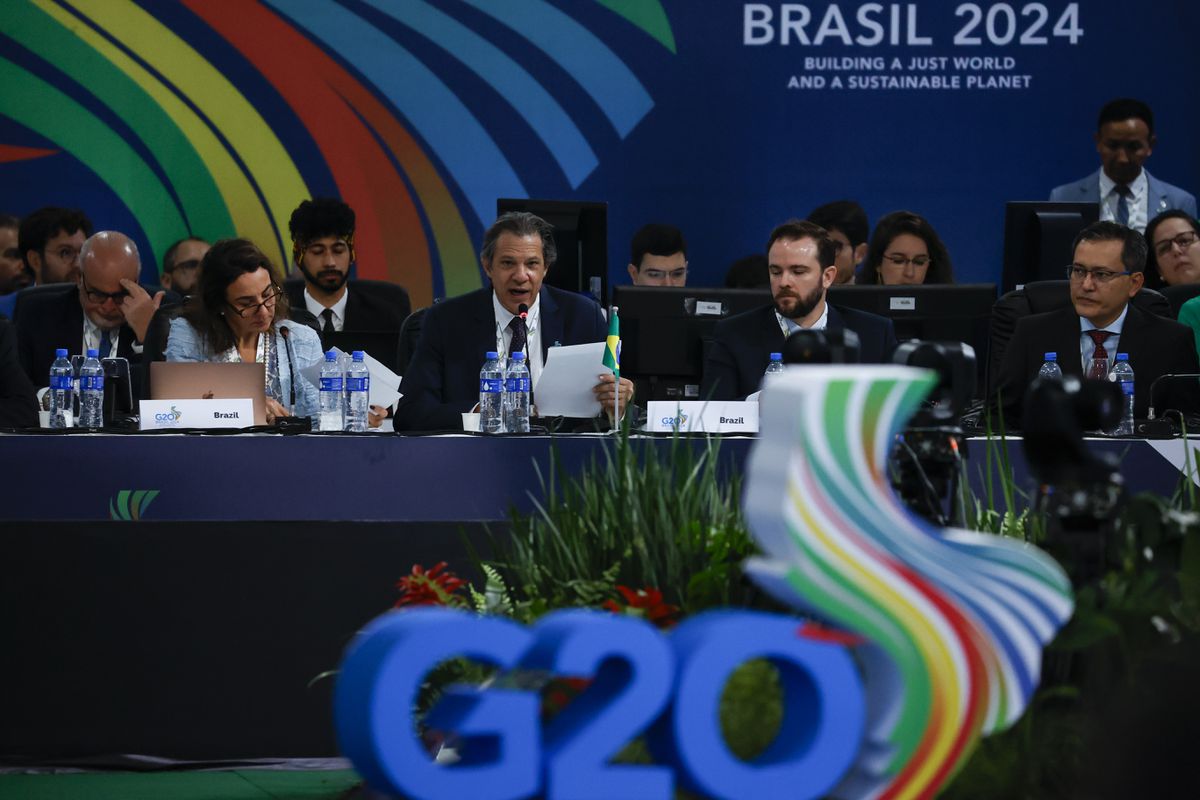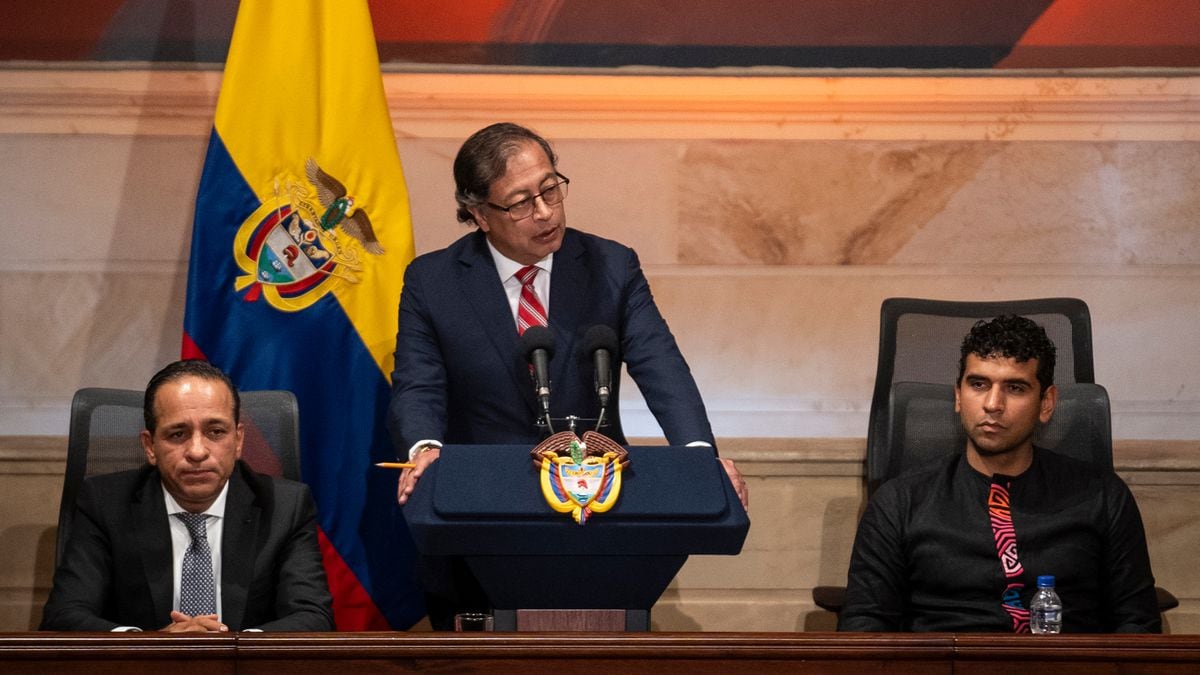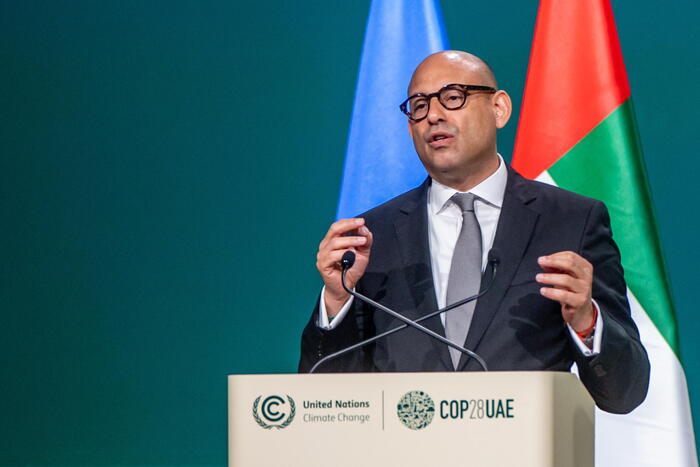The 22 countries of the Ibero-American Community have not been able to agree on how the new global financial architecture should be built.
Government negotiators meeting in Santo Domingo (Dominican Republic) have failed to agree on one of the four documents that the heads of state and government had to approve at the summit that will end this Saturday.
There will be an Ibero-American Environmental Charter or Green Pact, a Charter of Digital Rights Principles and a Food Security Strategy, but not a proposal on a new financial architecture.
The objective of this document, whose approval was agreed at the Andorra summit in 2021, was to move towards a more inclusive, flexible and fair financial system.
Latin American countries are having serious difficulties in obtaining the necessary financing to recover the rate of growth after the pandemic, as they are essentially measured income companies that cannot benefit from concessional loans under advantageous conditions like the poorest countries nor do they have solvency enough to obtain them in the international financial markets.
Neither does domestic savings have a sufficient volume to undertake the necessary investments, according to experts.
The draft that has not gone ahead requested, among other measures,
The approval of this document was especially timely and important because Brazil will assume the presidency of the G-20 in 2024, which is the forum where these proposals should be debated and approved and in which the Ibero-American Community has four seats: Mexico, Argentina, Spain and Brazil itself.
However, due to the discrepancies of some countries, such as Cuba, it has not been possible to reach the necessary consensus for its approval, according to diplomatic sources.
The meeting of Ibero-American leaders is also marked by absences, starting with the presidents of two Latin American giants by GDP and population.
The Brazilian Luiz Inácio Lula da Silva did not travel to the Dominican Republic for a visit to China, which he considers a priority ally.
The Mexican Andrés Manuel López Obrador, who usually looks askance at international forums, had already announced that he would not attend, but on this occasion his government will not send the head of Foreign Relations, Marcelo Ebrard, and the delegation will be headed by the undersecretary responsible for Latin America and the Caribbean.
Added to these absences are those of Nicolás Maduro, who had confirmed his participation and who finally, as happened in the previous edition of the summit in Andorra, canceled at the last minute amid a wave of criticism of his government.
The Venezuelan president, who last January also left the summit of the Community of Latin American and Caribbean States (Celac) planted, has to deal these days with an internal corruption scandal at the state oil company, PDVSA, which on Monday led to the resignation of one of the main Chavista leaders, the Minister of Oil Tareck El Aissami.
In Santo Domingo, Foreign Minister Yván Gil will be in charge of defending the position of Caracas.
Peruvian Dina Boluarte, immersed in a political storm due to the repression of the protests that broke out after Pedro Castillo's failed self-coup attempt last December, will be another of those absent, as will four of the seven Central American presidents.
The Panamanian Laurentino Cortizo, the Guatemalan Alejandro Giammattei, whose government is increasingly questioned by the attack against judges, prosecutors and journalists who investigate corruption, the Salvadoran Nayib Bukele, focused on his war against the gangs, and Nicaraguan Daniel Ortega.
The drift of the Managua regime is precisely another of the issues that, indirectly, hovers over this summit.
The Government of Cuba does participate, which already on Thursday demanded from the Ibero-American Community a condemnation of the trade embargo and the rejection of the decision of the Joe Biden Administration to keep Havana on the list of regimes sponsoring terrorism.
President Miguel Díaz-Canel will defend an alternative model of cooperation between the countries of the region.
“Cooperation is a noble and useful way of relating to nations, always.
In uncertain and challenging times like the ones we are living in, it is a necessity and an urgency, ”he said this Friday.

/cloudfront-eu-central-1.images.arcpublishing.com/prisa/MVWW5O43ZKSCJ5OCIOWPLGCEHU.jpg)

/cloudfront-eu-central-1.images.arcpublishing.com/prisa/76GDL6UNHRFLRO2RAJWYIEXOXU.jpg)

/cloudfront-eu-central-1.images.arcpublishing.com/prisa/G4E24XOQPFEYXPHXB72PFZJ3WQ.jpg)

/cloudfront-eu-central-1.images.arcpublishing.com/prisa/ZU5KUJFBSRGVVM2SXJTZBZP3XI.jpg)

